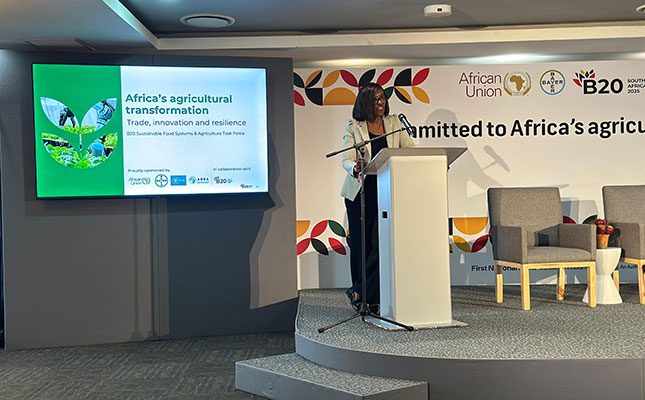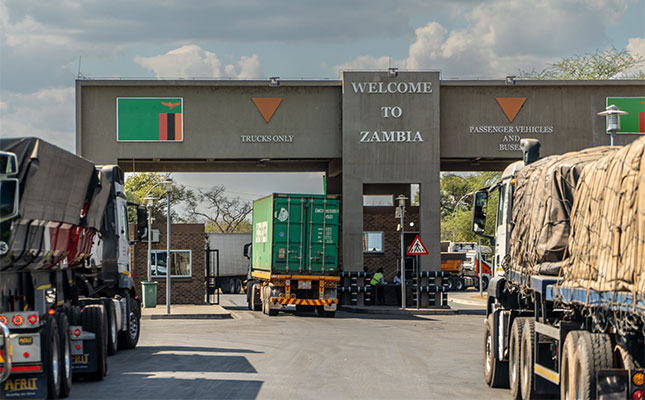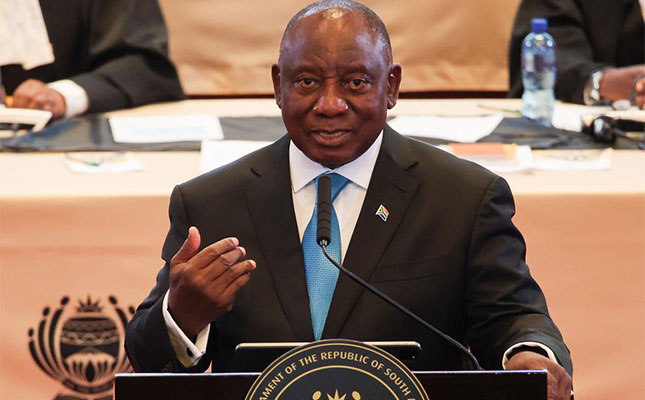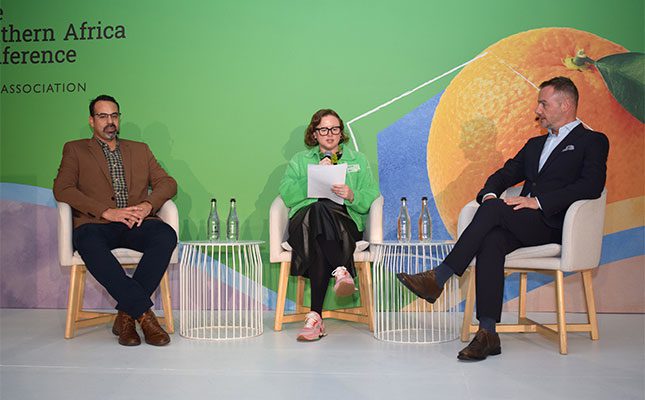
Opening her remarks with the challenge: “Are we acting boldly enough and fast enough to confront Africa’s food challenge by 2030?”, Mallowah reminded delegates that the deadline is frighteningly close.
“It is only four harvests away,” she said, emphasising that the continent must use these four growing seasons to strengthen systems capable of feeding an additional 200 million Africans by the end of the decade.
If decisive action is not taken now, she warned, Africa faces increasing food price volatility, heightened dependence on imports, climate-driven production shocks, and worsening rural poverty.
“[However], if we act with urgency, 2030 can be a turning point: the moment Africa becomes a key driver of global food resilience and not a passive participant.”
From ambition to implementation
Mallowah stressed that the B20 Summit represents a crucial shift “from ambition to high-impact action” by removing practical barriers facing farmers. These range from climate risks to the everyday constraints of finance, infrastructure and market access.
“Farmers need predictability, reliability and fairness in a system they can trust to take calculated risks,” she said.
This point likely resonates strongly with South African producers facing deteriorating rural roads, strained ports, energy instability and cold-chain limitations.
What made the Task Force’s process unique, she noted, was its business-driven approach. While governments were not part of the initial drafting of recommendations, they played a central role in refining them into actionable proposals. “We handed our insights to policy makers with a sense of partnership and urgency,” she said.
Three levers to transform Africa’s food systems
The B20 Task Force focused on what Africa can do between now and 2030 to advance food security through trade, resilient supply chains and sustainable agriculture. Their work produced three priority “levers”:
- Unlocking intra-African trade
Improving trade flows within the continent could unlock US$180 billion (about R3,127 billion) in agricultural export value and create 10 million jobs.
Mallowah highlighted South Africa as a proof of concept: when infrastructure works and markets function predictably, African agriculture performs at world-class levels.
However, the country’s current logistics and infrastructure challenges reflect a broader continental reality – systems must work reliably for farmers to thrive.
- Building resilient regional supply chains
Africa cannot rely on distant international supply chains in an era of growing geopolitical and climate volatility. Investments in processing capacity, rural transport, cold-chain systems, warehousing and cross-border logistics could lift regional GDP by 2% and improve the livelihoods of 30 million people. “Resilience is the difference between stability and vulnerability,” Mallowah said.
- Scaling sustainable agriculture
African farmers are expected to produce more food for more people under intensifying climate stress and often with fewer resources. Sustainable intensification, she argued, is not optional: it is the foundation of long-term productivity and resilience.
“We must support farmers to grow more while regenerating the ecosystems that support their productivity.”
Smallholders at the centre
While South Africa’s commercial agriculture is a “continental asset”, Mallowah emphasised that 70% of Africa’s food is produced by smallholder farmers, most of them women.
The question is not how to replace them with commercial operations, but how Africa’s food future could change if smallholders received proper support from access to credit and technology to climate-resilient infrastructure.
The decade of delivery
If there is one overriding lesson from the B20 process, Mallowah said, it is that transformation at scale is impossible without private-sector investment, and unsustainable without government and community leadership. The next decade must be defined by partnerships, implementation and delivery.
“Africa has the land, the youth, the creativity and the resilience to feed itself and help feed the world,” she concluded. “What we do not have is time.”
For South African farmers both commercial and smallholder the message is clear: the window for decisive action is closing, and their role in shaping Africa’s food future has never been more critical.
Get trusted farming news from Farmers Weekly in Google Top Stories.
➕ Add Farmers Weekly to Google ✔ Takes 10 seconds · ✔ Remove anytime





